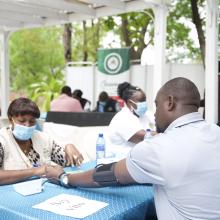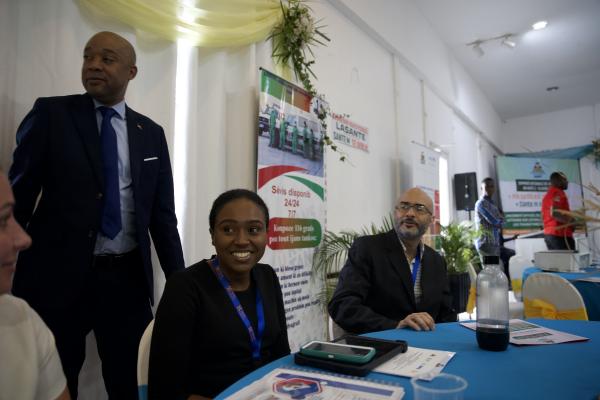On April 10, 2025, over 150 people gathered in Port-au-Prince for the official launch of the National Commission Report on Noncommunicable Diseases, Injuries (NCDIs), and Poverty. Attendees included representatives from the Ministry of Health, medical institutions, local organizations, and international partners.
Co-chaired and co-funded by Zanmi Lasante alongside the Ministry of Health and FHADIMAC, the report puts clear data and words on what has long been hidden in plain sight: in Haiti, nearly half of all illness and death are linked to chronic conditions, and about 12% to injuries—illnesses that too often kill silently.
A Raw Portrait of Health in Haiti
Cardiovascular disease, diabetes, cancer, asthma, kidney disease, and mental health conditions are widespread in the population. The report identifies 37 priority conditions and injuries that require urgent action. The most affected are, unsurprisingly, the poorest. Access to diabetes screening, treatment for hypertension, and cervical cancer prevention remains deeply unequal.
The poorer people are, the farther they live from health facilities, the later they seek care, and the more dire the outcomes. And when they do reach a hospital, the costs are often overwhelming.


A Shift in Paradigm
This report doesn’t stop at diagnosis. It outlines targeted interventions, health system priorities, and a framework for building a more equitable healthcare system. It calls for decentralizing care, training more specialists, integrating mental health into primary care, and planning with poverty in mind.
In his remarks, Dr. Ralph Ternier reminded attendees that “this report is not an end. It’s a beginning. It invites us to act—with courage and clarity—to build a health system that serves the silent majority.”
Making Health a Right, Not a Privilege
The message from all speakers and video testimonies was clear: health cannot remain a luxury. NCDs and injuries don’t discriminate, but they hit the most vulnerable the hardest. To reverse this, we need bold political choices, courageous investments, and collective action.
The report will soon be available on the Ministry of Health’s website. It also serves as a tool to hold decision-makers accountable—especially with the upcoming UN meeting on NCDs in September.
In Haiti, every preventable death is a collective failure. Every life saved is a victory we must make possible.


